Find out what to expect when you start LEMTRADA treatment for relapsing MS
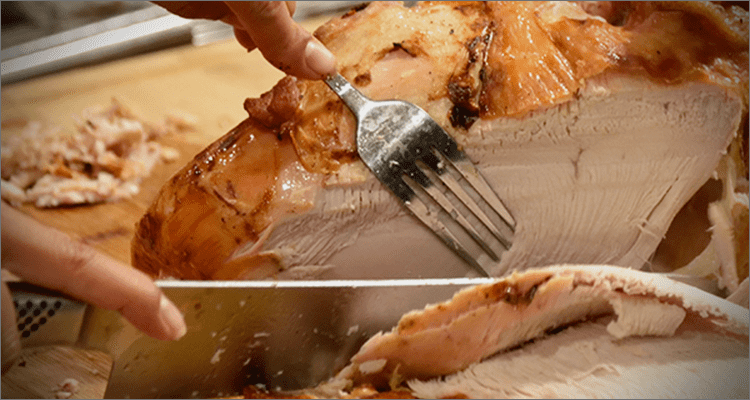
THE RECIPE FOR FOOD SAFETY DURING MULTIPLE SCLEROSIS TREATMENT
By The LEMTRADA Team
Is there anything more satisfying than preparing a delicious, nutritious meal at home? Maybe not, but one thing is for certain—for a meal to be truly enjoyable, it must be prepared safely. And for those who are starting treatment with LEMTRADA, it’s important to be extra careful about the food you eat.
As you may have discussed with your healthcare provider, LEMTRADA affects the immune system by recognizing and removing many of the cells thought to be involved in relapsing MS, leading to a reduction in the number of specific immune cells (T and B cells) in the body. For this reason, people who are about to begin or have recently started treatment with LEMTRADA can be more vulnerable to a serious infection caused by listeria called listeriosis.
Listeria is a bacteria that can get into mainly raw, undercooked, or unpasteurized foods that are handled improperly. When ingested, listeria can cause a serious infection that needs to be treated immediately, with symptoms such as fever, chills, diarrhea, nausea, vomiting, headache, pains in joints and muscles, neck stiffness, difficulty walking, mental status changes, coma, and other neurological changes.
It’s important to avoid foods that may be a source for listeria for about a month before you start your LEMTRADA treatment. You should continue eating cautiously during and after treatment. Listeria infections have occurred as early as 3 days after treatment and up to 8 months after the last LEMTRADA dose. The duration of increased risk for Listeria infection after LEMTRADA treatment is unknown. Talk to your healthcare provider if you have any questions.
But fear not, food fans—it’s not that you can’t eat. You’ll just need to be more careful about how your food is handled and prepared. Enjoying meals and snacks safely before, during, and after your treatment courses is easy if you follow these food safety tips.
AVOID THESE DELICACIES—FOR NOW
During the time you are at greater risk of listeria, there are certain foods you should just steer clear of. These include:
- Soft cheeses like queso fresco, queso blanco, panela, brie, Camembert, blue-veined, and feta
- Raw or lightly cooked sprouts, including alfalfa, clover, radish, and mung bean sprouts
- Cut melon at room temperature, or refrigerated melon that has been cut for more than 7 days
- Lunch meats like cold cuts, chicken liver, and uncooked hot dogs
- Unpasteurized or raw milk, ice cream and cheese made from raw milk
- Raw or undercooked seafood, and smoked or cured seafood that is not shelf-stable or cooked
- Rare or undercooked beef, poultry, pork, and lamb
ALWAYS CHECK THE TEMPERATURE
You can safely eat many of your favorite foods if they are cooked or heated to the proper internal temperature. When you order food in a restaurant, ask for your food to be cooked to medium-well temperatures. If you’re cooking at home, make sure you get a good food thermometer and check the temperature against the chart below:
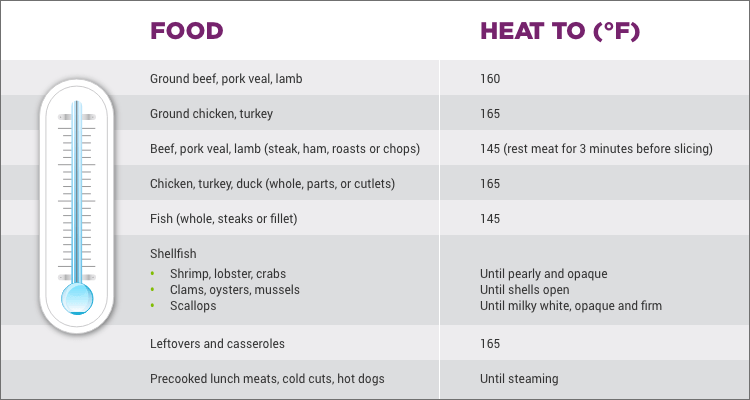
KEEP A SAFE KITCHEN
Germs have a way of hiding and spreading around the kitchen, so make sure to keep cooking and preparation surfaces clean. Here are some other food safety tips:
- Wash hands with warm water and soap for at least 20 seconds after handling raw food
- Prevent cross-contamination—wash knives, utensils, cutting boards, and countertops well
- Use separate cutting boards and plates for raw meat, poultry, and seafood
- Keep raw meat, poultry, seafood, and eggs separate from all other foods in the refrigerator
- Make sure your refrigerator chills to below 40°F
- Thaw frozen foods in the refrigerator, in cold water, or in the microwave. Never thaw food on kitchen counters
ENJOY FOOD SAFELY
Hopefully, all this talk about listeria hasn’t spoiled your appetite. Food is wonderful and can still be enjoyed throughout your treatment, as long as it’s prepared safely. Just remember to talk to your healthcare provider about any foods that you should avoid and precautions you should take before starting treatment with LEMTRADA, and when your risk of listeria may decrease.
Bon appétit!
-
 SEE MORE ARTICLES
SEE MORE ARTICLES
-
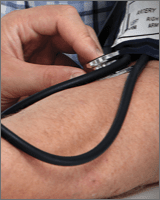 MONTHLY MONITORING WITH LEMTRADALEMTRADA patient Donnie discusses how he made monthly monitoring a... LEMTRADA patient Donnie discusses how he made...
MONTHLY MONITORING WITH LEMTRADALEMTRADA patient Donnie discusses how he made monthly monitoring a... LEMTRADA patient Donnie discusses how he made... -
 MY EXPERIENCE WITH SIDE EFFECTSEven though my healthcare team had thoroughly prepared me and explained... Even though my healthcare team had thoroughly...
MY EXPERIENCE WITH SIDE EFFECTSEven though my healthcare team had thoroughly prepared me and explained... Even though my healthcare team had thoroughly... -
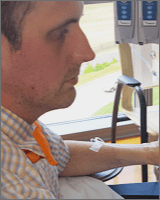 My LEMTRADA infusion-day experiencesSince I have personal experience with LEMTRADA infusions, I’ll fill you in on... Since I have personal experience with LEMTRADA...
My LEMTRADA infusion-day experiencesSince I have personal experience with LEMTRADA infusions, I’ll fill you in on... Since I have personal experience with LEMTRADA... -
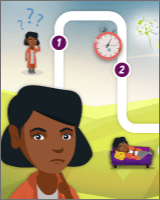 Taking It Slowly: Be Mindful of Post-Infusion FatigueWhy is it so important to understand how to take care of yourself after your... Why is it so important to understand how to...
Taking It Slowly: Be Mindful of Post-Infusion FatigueWhy is it so important to understand how to take care of yourself after your... Why is it so important to understand how to...


